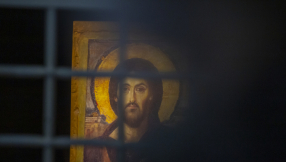Fallen dictators and notions of hell
The sentiments of “good riddance” reflect a view widely held by the general public, if the comments on Facebook and Twitter were anything to go by. Some postings even displayed “hit lists” with the names of Osama bin Laden and Colonel Gaddafi at the top, their boxes duly ticked off. Below them are further names such as Robert Mugabe, Rupert Murdoch and even a certain World Cup rugby referee whose demise are still awaiting completion.
What I find interesting, gauging by the large number of “may they rot in hell” type comments, is that the reality of hell somehow seems to become conveniently useful again on such occasions, when at most other times it appears to be a politically incorrect notion.
Preachers in most churches today have long since stopped preaching about hell, but it doesn’t seem to stop people resurrecting the idea for those who are the target of all the Western world’s venom, hatred and desire for revenge. What the church has become embarrassed to even refer to does still resonate in many non-Christian minds as a just recompense for the high ranked perpetrators of global evil and wickedness. I guess it’s just generally thought that it’s only people who are deemed to be in that category who go there. The possibility of ordinary mortals – society’s “Joe Average” – ending up there is not generally contemplated!
It’s not altogether easy to determine what the Christian attitude should be when such news hits our TV screens. To be honest, I, and probably many other Christians, share the wider population’s sense of relief, even pleasure, when a source of unmitigated evil has been removed. But at the same time, we may well find ourselves a little reticent to identify with the gloating, triumphalism, and the commonly expressed sentiments expressing a desire to see them rot in hell. After all, Proverbs 24:17 admonishes us “Do not gloat when your enemy falls; when he stumbles do not let your heart rejoice”.
And yet there are a number of biblical examples of God’s people apparently doing precisely that, in the wake of their enemy’s catastrophic destruction. Exodus 15 records the song of Moses and Miriam after the Egyptian army is annihilated in the Red Sea. Even more interestingly, at the end of time, God’s people are depicted in Revelation 19 as celebrating the downfall and destruction of Babylon the Great, and it’s often forgotten that this is the context for Handel’s great “Hallelujah Chorus”.
Is this another of the great paradoxes of the Christian faith, or is there a simpler explanation? Perhaps the answer is found in the context of Jesus’ much misunderstood words about loving our enemies in the Sermon on the Mount. The way we treat personal enemies in the context of our one-to-one relationships (“Do not resist an evil person” – Matthew 5:28) does not extend to the way we respond to the manifest work of the devil in the world (“Resist him, standing firm in the faith” -1 Peter 5:9). So when an instrument of evil and oppression in the world at large is overthrown we are surely right to rejoice – not, as we’re reminded in Ezekiel 18:23, because God takes any pleasure in the death of the wicked – but simply because a great source of evil on our planet has been eliminated.
However, in my case, I didn’t out on the streets to celebrate and dance. The sight of Muslims in the Middle East doing that following the 9/11 act of terrorism was repugnant to most people in the West, and the sight of Christians doing the same when terrorist leaders are shot can hardly promote the cause of the Gospel in the Middle East. Besides which, I ask the question: does the demise of bin Laden and Gaddafi mean that everything will now be better?
I certainly hope it will signal a better future for the Libyan people. But history sadly illustrates how frequently one form of tyranny is replaced by another. The end of one terrorist often signals the accession of another. I guess my rejoicing will only be unbridled and without restraint when, by grace, I am one of the countless throng in Revelation 19 who will one day celebrate the ultimate destruction of evil when Jesus returns. Then the Hallelujah Chorus will take on a new and more wonderful meaning.













